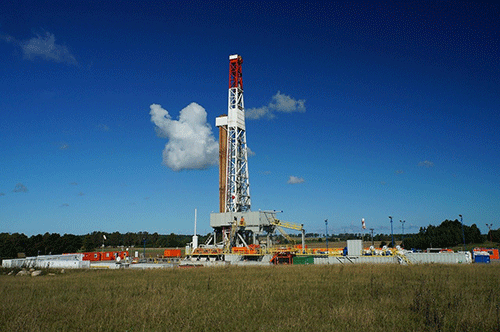Canadian oil and gas company Reconnaissance Energy (ReconAfrica) and its joint venture partner, the National Petroleum Corporation of Namibia (Namcor), have confirmed spudding of the first of four wells on 25 June 2022 that were identified with previous exploratory drilling. ReconAfrica recently completed the second phase of a 2D seismic programme (761km) and commencement of the first seismically defined, initial four-well drilling programme.
“Spudding in,” or to “spud” a well means to begin drilling operations.
According to a ReconAfrica statement, this initial four- well programme will be executed continuously, and will target seismically-defined structures with the objective of testing two of the three play types; oil- prone Karoo Rift Fill, and Intra Rift Fault Block plays.
The well that is being spud will be drilled to a planned depth of approximately 2 800 metres, and is designed to test potential conventional oil and associated natural gas reservoirs in clastic rocks (sandstones) in the Karoo Rift Fill, the company’s primary play.
“The well will also be drilled deeper into the Pre-Karoo Mulden and Otavi formations. These intervals correspond to zones in the company’s first well, the 6-2, which is approximately 6.5 kilometres to the east, that had good oil and gas shows. It is anticipated the well will reach total depth within 60 days from the initial spud,” the statement continued.
ReconAfrica is engaged in the opening of the newly- discovered deep Kavango Sedimentary Basin in the Kalahari Desert in the northeastern part of Namibia and northwestern Botswana. It holds petroleum exploration licences comprising approximately 8.5 million contiguous acres.
“In all aspects of its operations, ReconAfrica is committed to a minimal disturbance of habitat, in line with best international standards, and will implement environmental and social best practices in all of its project areas,” they stated.
The joint venture partners successfully completed the second seismic acquisition programme on budget and on schedule. More than 180 000 human hours were utilised during the campaign, of which approximately 80% were Namibians recruited nationally, and predominantly from local communities. As with the Phase 1 programme, the company will utilise multiple processing companies to provide the best possible seismic images.
Including Phase 1, ReconAfrica has currently acquired 1 211km of seismic data within its over 34 000 square kilometre licensed area.
Planning is currently underway for the next phase of 2D seismic acquisition, which is anticipated to comprise in excess of 1 000km of 2D seismic data. This will be an extensive programme, and subject to permitting the company anticipates on the ground acquisition to begin later this year.
– ebrandt@nepc.com.na


